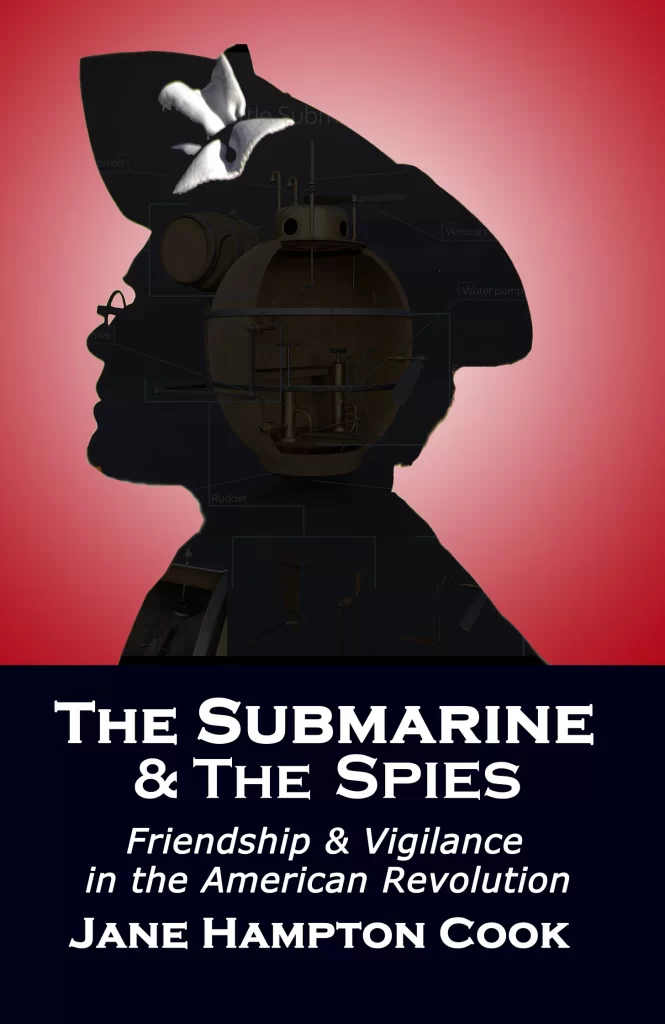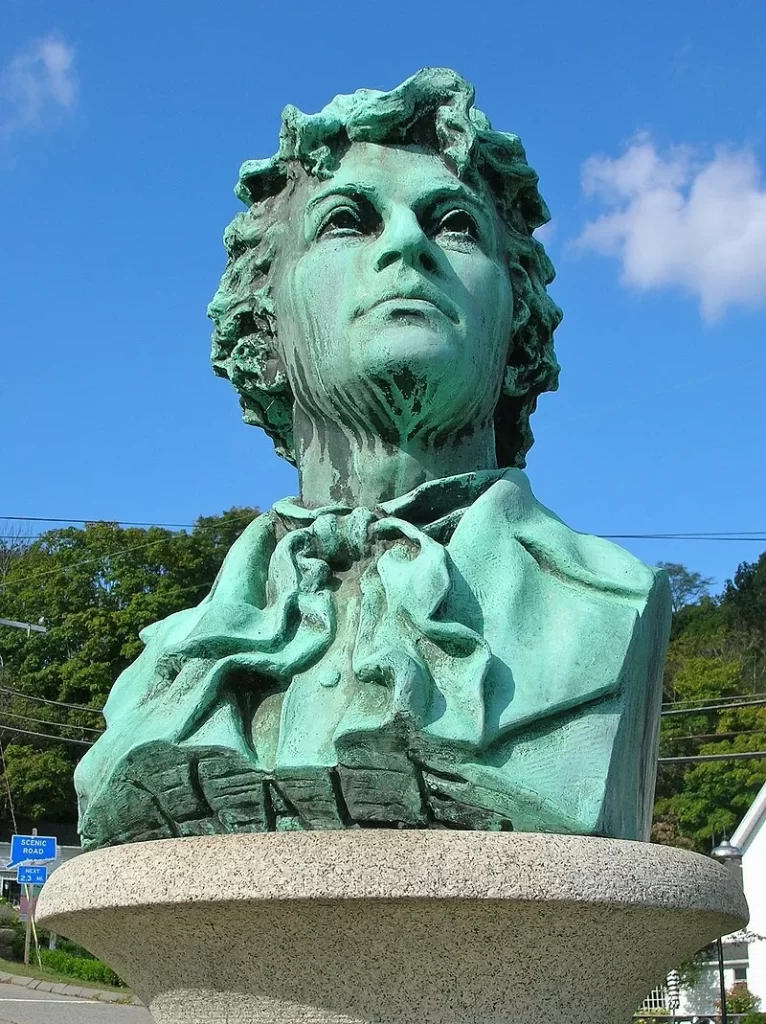Please Follow us on Gab, Minds, Telegram, Rumble, Gab TV, Gettr, Truth Social, Twitter
My new book, The Submarine & The Spies, is set to be released on May 4. Enjoy this preview, which shows how one of the book’s main characters, Nathan Hale of Connecticut, reacted to news of the Battles of Lexington and Concord on April 19, 1775.
For ages 12 and up, The Submarine & The Spies is fictionalized history. Every named character was real and real-world events drive the plot. This is also an opportunity for middle, high school, and college teachers to teach the hero’s journey or for history teachers to teach the story of the American Revolution in a relatable way. Feel free to share this with parents and teachers you may know.

Nathan Hale had not planned to say anything at New London’s town meeting that third week of April 1775. But after he arrived at the church and listened to what was going on, he was so moved that he delivered remarks on the spot.
The meeting began when town leaders announced the news from Massachusetts, which had been communicated by horseback riders for the Committees of Correspondence in New England. Leaders throughout Connecticut were asked to provide fresh horses for these messengers. The latest message had caused more alarm than any other message.
“To all friends of American liberty, be it known, that this morning, before break of day on April 19, a brigade of regular British soldiers consisting of about one-thousand to two-thousand men landed at a farm, at Cambridge, and marched to Lexington, where they found a company of our colony militia in arms, upon whom they fired without any provocation and killed six men and wounded four,” one of the town leaders relayed about the recent Battle of Lexington in Massachusetts.
Not only had British soldiers fired on colonists in Lexington, but they had also attacked nearby Concord.
“The British regulars went in Concord, burnt the courthouse, took two pieces of cannon, which they rendered useless, and began to take up Concord bridge. Many on both sides were soon killed,” the New London town leader explained.
Nathan thought about what he was hearing. British soldiers had attacked colonists in Massachusetts. The conflict had now become a war with weapons. He glanced at the newspapers he had brought with him. Studying the circled items that had stood out to him, he thought about what he could say.
Some of the men looked angry, and some were sad. Nathan listened to their speeches. Soon it was his turn to speak.
“Mr. Addison—in both his short editorials in his Spectator magazine and his plays—reminds us about the importance of virtue. ‘Here will I hold. If there’s a power above us. (And that there is, all nature cries aloud. Through all her works,) he must delight in virtue; And that which he delights in, must be happy,’” Nathan quoted from memory.
He held up a newspaper. “Where is the virtue in this news report? Here we learn that the king has sent a ship to Boston with a proposal that if Congress would only pay him 300,000 pounds a year, then he would repeal the laws against the colonists. Our Majesty tries to buy our loyalty. But if money is his object, how much is enough for him? What would prevent him next year to demand 400,000 pounds or 500,000 pounds the next? When would it end? It will not end as long as we do not have a representative government to keep the crown and the Lords of London accountable. There is no virtue in bribery or extortion,” Nathan said.
He picked up a different newspaper.
“Here we have another report, from British General Gage in Boston. He has now ordered that all shipping in New England, which includes Connecticut, should be seized for the use of the king. Query. What does King George III intend to do with all of our ships? Who is supposed to pilot them? Soldiers? Why does he want to take away our shipping? Without ships, a father cannot travel to the best fishing spots in the ocean or in the sound and catch fish for feeding his family. Without ships, we cannot trade with our friends in Boston, New York, or the Caribbean,” he said in a convincing tone.
“Without ships, whalers cannot catch whales, whose blubber we need for oil for our lanterns and candles. There is no virtue in theft of our property and means for feeding ourselves and heating or providing light for our homes. Let us remember that justice must be observed even to the lowest of society. We know from our studies that the Roman Republic fell because it sought to be an empire dominating the world instead of representing its people. We are at war not with just a king but an empire,” Nathan said, placing the newspaper on the table in front of him.
“We also know from scripture that it is our duty to obey our government. But we have a higher calling. When that government becomes tyrannical, we are to follow the Savior’s example in Galatians and to stand firm for freedom against tyranny and slavery. We must stand firm for Connecticut, for our country, and for our God. As he promised us in the Book of Joshua, his Providence will go with us wherever our paths take us. Let us never lay down our arms until we obtain independence.”
Nathan did not know in that moment how he would serve, but he was ready to answer the call.

While Nathan talked with men in New London about the battles of Lexington and Concord, David paid close attention to the tidbits of news that came into New Haven. He learned that not only had the British soldiers sought to take the gunpowder and ammunition at Concord, but they had also tried to seize the leaders of the Sons of Liberty, John Hancock and Samuel Adams, in Lexington. Fortunately, they failed to capture them.
The students of Yale and the residents of New Haven would also not forget what happened at Beers Tavern on April 21, 1775. David would not forget it either.


This story is wonderful, inspirational, and so appropriate for today- I hope many young readers have a chance to read your book!